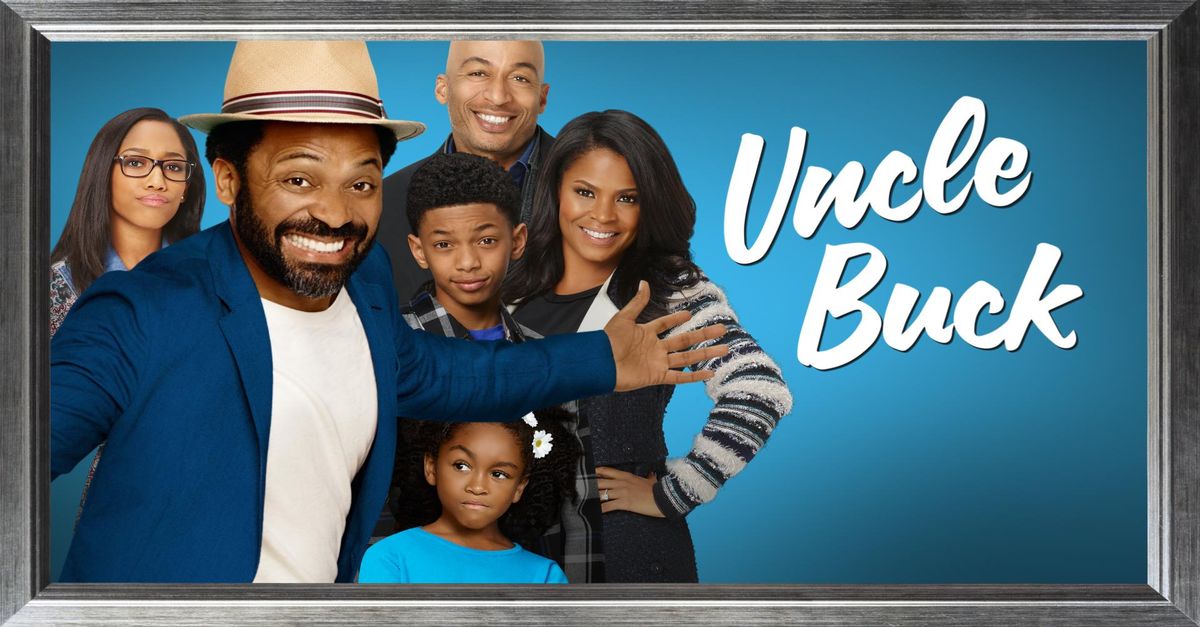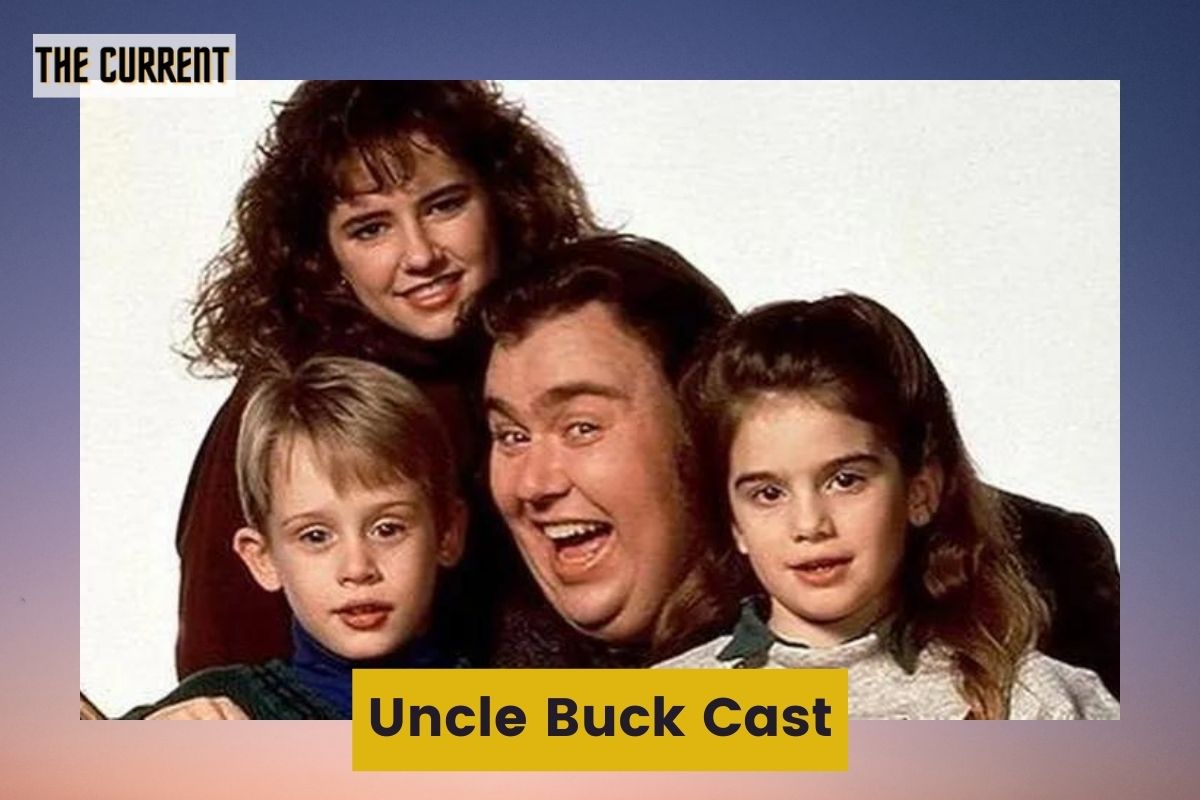Uncle Buck
Uncle Buck is a classic 1989 comedy film that tells the story of a lovable but irresponsible bachelor who is forced to take care of his niece and nephews when their parents are away. The film is a heartwarming and humorous look at family, responsibility, and the importance of learning to grow up.
Uncle Buck: The Character
Uncle Buck is a complex character who is both endearing and frustrating. He is a free spirit who enjoys life on his own terms, but he also has a good heart and a strong sense of loyalty to his family.
Personality Traits
Uncle Buck is a charming and charismatic individual who is always the life of the party. He is known for his quick wit, his love of practical jokes, and his ability to connect with people from all walks of life. However, he is also impulsive, irresponsible, and often struggles with authority. He is a bit of a slacker who has trouble holding down a job and prefers to spend his time having fun. Despite his flaws, Uncle Buck is a genuinely good person who deeply cares for his family. He is always willing to help those in need, even if it means going against his own selfish desires.
Relationships with the Family
Uncle Buck has a unique relationship with each member of the family. He has a close bond with his niece, Tia, who admires his carefree spirit and sees him as a role model. He also has a good relationship with his nephew, Miles, who is a bit more reserved but enjoys Uncle Buck’s sense of adventure. However, Buck’s relationship with his nephew, Buster, is more complicated. Buster is a rebellious teenager who often clashes with Uncle Buck’s authority. Buck’s relationship with his sister, Cindy, is also strained. She is frustrated by his irresponsible behavior and feels that he doesn’t take his responsibilities seriously.
Parenting Styles
Uncle Buck’s parenting style is a stark contrast to the traditional parenting styles of the film. While Cindy and her husband, Bob, are strict and disciplined, Uncle Buck is more laid-back and permissive. He allows his niece and nephews to have more freedom and encourages them to be themselves. This unconventional approach initially leads to chaos and conflict, but it ultimately helps the children to learn and grow.
Key Moments of Growth
Uncle Buck undergoes a significant transformation throughout the film. He initially comes to the family’s house with the intention of having a good time and escaping his own responsibilities. However, as he spends more time with his niece and nephews, he begins to realize the importance of family and the need to be a better role model. One key moment of growth occurs when Buck confronts his own demons and faces the consequences of his past actions. He also learns to put the needs of others before his own, which is a significant departure from his previous self-centered behavior.
Character Arc
| Stage | Motivation | Challenges | Outcome |
|---|---|---|---|
| Initial | Escape responsibility, have fun | Taking care of his niece and nephews, dealing with his sister’s disapproval | Begins to understand the importance of family and responsibility |
| Middle | Learn to be a better role model, connect with his niece and nephews | His own impulsive behavior, his nephew’s rebelliousness | Starts to change his ways and becomes a more responsible and caring individual |
| Final | Embrace his role as an uncle and a family member | Facing his past mistakes, reconciling with his sister | He grows as a person and learns the true meaning of family |
Thematic Exploration in “Uncle Buck”

“Uncle Buck” is a classic comedy-drama that explores the complexities of family, responsibility, and love in a refreshingly unconventional way. The film goes beyond the typical portrayal of family dynamics, challenging traditional notions of parenting and responsibility while simultaneously highlighting the importance of unconventional bonds and the power of mentorship.
The Unconventional Family
The film challenges the traditional notion of a nuclear family by showcasing a diverse and often chaotic family unit. Buck, the unconventional uncle, is thrust into the role of caregiver for his nieces and nephew, and his unorthodox methods of parenting provide a stark contrast to the more traditional approach of his brother, Bob. The film emphasizes that family is not defined by blood ties but by the love and support that exists between individuals. Buck’s presence disrupts the family’s routine, creating both chaos and laughter. His love for his niece and nephew is evident in his willingness to step up and take on the responsibility of their care, despite his own flaws and shortcomings.
The Importance of Mentorship
Buck’s presence in the lives of his nieces and nephew serves as a powerful example of the importance of mentorship. He teaches them valuable lessons about life, love, and responsibility, often through his own experiences and mistakes. Buck’s unconventional methods of parenting, while sometimes chaotic, provide a refreshing alternative to the more rigid and traditional approach of Bob. The film highlights the significance of having a mentor who can provide guidance, support, and a different perspective on life. Through Buck’s mentorship, the children learn about resilience, self-reliance, and the importance of embracing their individuality.
Responsibility and Unconventional Love
“Uncle Buck” also explores the theme of responsibility, particularly in the context of family. Buck’s initial reluctance to take on the role of caregiver highlights the complexities of responsibility, but his eventual commitment to his nieces and nephew demonstrates the power of love and the importance of family. The film also challenges the traditional notions of love, showcasing the unconventional bond between Buck and his nieces and nephew. Their relationship is not always easy, but it is filled with love, laughter, and a deep understanding of each other’s needs. Buck’s unconventional methods of showing love, often through playful teasing and teasing, highlight the importance of embracing individuality and finding unique ways to connect with others.
Impact of Buck’s Presence
Buck’s presence has a profound impact on the family dynamic, bringing both positive and negative changes. His unorthodox parenting style initially causes chaos and friction, but it also provides a much-needed dose of fun and spontaneity. He encourages the children to embrace their individuality and teaches them valuable life lessons through his own experiences. However, his lack of structure and discipline also creates challenges for the family, leading to conflict and tension. Buck’s presence forces the family to confront their own beliefs and values, ultimately leading to a deeper understanding and appreciation of each other.
Table of Themes and Evidence
| Theme | Supporting Evidence |
|---|---|
| Unconventional Family | Buck’s role as a caregiver despite not being a traditional parent figure. |
| Importance of Mentorship | Buck’s lessons on life, love, and responsibility. |
| Responsibility and Unconventional Love | Buck’s initial reluctance to take on the role of caregiver and his eventual commitment to his nieces and nephew. |
| Impact of Buck’s Presence | Chaos and friction caused by Buck’s parenting style, as well as the valuable life lessons he teaches. |
“Uncle Buck” as a Cultural Phenomenon

“Uncle Buck,” despite its relatively modest box office success upon release, has transcended its initial run to become a beloved and enduring cultural phenomenon. The film’s relatable characters, witty dialogue, and heartwarming moments have resonated with audiences across generations, solidifying its place in cinematic history.
“Impact on Popular Culture”
“Uncle Buck” has left an indelible mark on popular culture, influencing subsequent comedies and family films. The film’s success in portraying a dysfunctional yet lovable family dynamic, featuring an unconventional protagonist, paved the way for similar films that celebrated the importance of family bonds, even when those bonds are tested. Its influence can be seen in later comedies such as “The Santa Clause” (1994), “Daddy Day Camp” (2007), and “The Guilt Trip” (2012), all of which feature flawed but ultimately endearing characters navigating family relationships. “Uncle Buck” also popularized the “uncle figure” trope in film, often portrayed as a mischievous but ultimately caring individual who serves as a mentor or confidante to younger characters. This trope has been replicated in numerous films, including “The Princess Bride” (1987) and “The Lion King” (1994), showcasing the enduring appeal of the “Uncle Buck” archetype.
“The Film’s Lasting Legacy”
The film’s lasting legacy lies in its ability to connect with audiences on a deeply personal level. Its humor is timeless, its heartwarming moments are genuine, and its characters are unforgettable. “Uncle Buck” is a reminder that family is not always perfect, but it is always worth fighting for. The film’s enduring popularity is a testament to its universal themes of family, love, and acceptance. It continues to be enjoyed by audiences of all ages, proving its enduring appeal and its place as a classic of American cinema.
“Comparison with Other Films”
While “Uncle Buck” stands as a unique film, it shares similarities with other films that feature unconventional characters and family dynamics. “The Princess Bride” (1987), for example, features a complex and unconventional family structure, with the protagonist, Westley, being raised by a group of pirates. Like “Uncle Buck,” the film celebrates the importance of family bonds, even when those bonds are unconventional. Another film that shares similar themes is “The Lion King” (1994), which explores the complexities of family relationships and the importance of finding your place in the world. These films, like “Uncle Buck,” highlight the power of family and the importance of embracing those who are different from us.
“Resonance with Audiences”
“Uncle Buck” has resonated with audiences over time because of its relatable characters and heartwarming moments. The film’s humor is both clever and heartwarming, and its characters are flawed but ultimately lovable. The film’s message of family and acceptance is universal, and it has touched the hearts of audiences across generations. For example, the film’s iconic scene where Buck gives a heartfelt speech to his niece, Maizy, about the importance of family has resonated with audiences for its emotional honesty and its message of unconditional love. This scene, along with others, has cemented the film’s place as a classic and a testament to the power of storytelling to connect with audiences on a deeply personal level.
Uncle Buck, with his heart-warming chaos and unpredictable wisdom, reminds us that sometimes the most valuable things in life aren’t measured in dollars. While we’re all curious about the financial success of figures like Joe Rogan, whose net worth is estimated to be in the millions, joe rogan net worth , it’s Uncle Buck’s genuine love and unwavering support that truly make a difference.
He teaches us that wealth isn’t just about money, but about the richness of our relationships and the impact we make on the lives of others.
Uncle Buck, with his chaotic energy and heart of gold, reminds us that sometimes the most unexpected characters can leave a lasting impact. His humor, much like the raw and relatable humor of Joe Rogan and Adam Sandler , transcends generations.
Perhaps Uncle Buck’s legacy lies in reminding us that laughter, even in the face of life’s challenges, is a powerful force that can bring people together.

